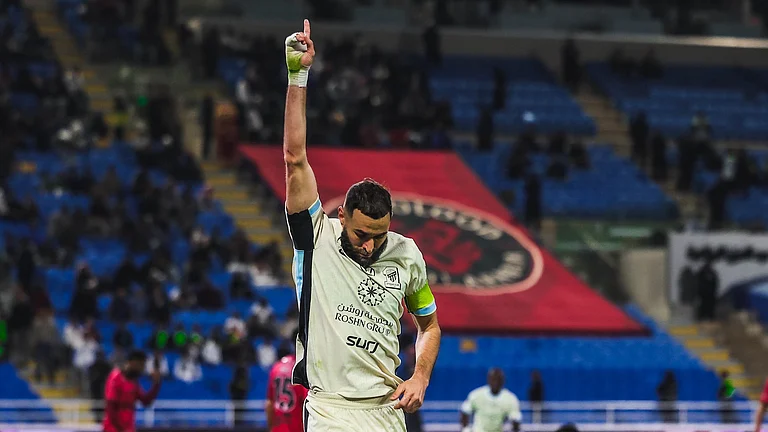FORTY-ONE years ago, Lakhubhai Pathak landed in London with 30 pounds in his pocket, without a friend in the big city, without a job in hand, and without a roof over his head, but with his heart puffed with hope.
Four decades later, the Gujarati, who had dropped out of his school after the fourth standard, is Britain's pickle king, speaking broken English, figuring among UK's rich and famous and suing P.V. Narasimha Rao.
A house—for his wife and their six children—was his most pressing need when he reached Britain in 1955. Any house, even in the seedier parts of the city, would do. Today, he lives in Mexico, owns flats in London, and has an apartment in Bombay.
The long journey began thus. Shanta Gauri would make bhujiya and papad at home, and the young man would go door to door selling them. The rest, as they say, is history. But Pathak does not take pride in that. Ultimately, it was his efforts that nailed one of the nation's most powerful men.
Says he: "Meri auqaat kya hai, meri liyaqat kya hai? Mein samosa, ganthiya bechne wala kaise bade bade logon ka nuksaan kar sakta hoon? (What is my status, what is my capability? How can a man who sells samosas bring down the high and mighty?) God has done everything."
Humility apart, Pathak has a razor-sharp memory. He remembers decades-old incidents with graphic detail. It was a quality that served him well before Chief Metropolitan Magistrate Prem Kumar while deposing in the Chandraswami cheating case.
So convincing was his testimony that Kumar observed in his order: "The revelations made by the complainant are simply shocking.... Visibly there does not seem to be any motive in falsely naming Shri P.V. Narasimha Rao."
Still, Pathak maintains he has nothing personal against the former prime minister. "I have nothing to do with Rao. I never gave him the money," he says. His ire at Rao is because he decided to pay Chandraswami $100,000 only after Rao's assurance in 1983 when he was the external affairs minister in the Indira Gandhi cabinet: "Pathakhji, swamiji ne mujhko sab kuch bata diya hai, aapka kaam ho jayeja."
Thirteen years after the battle began, it's not the money he paid Chandraswami for a contract he did not bag that bothers Pathak. What rankles is that the swamiji in whom he had reposed all his trust had turned out to be a cheat. And that such a person had a Union minister's backing. "Despite my repeated requests, Rao did not bother to ask the swami to give me my money back."
The episode cost Pathak heavily at home. His four sons turned against him when the promised newsprint contract, for which Chandraswami had been paid with Rao's assurance, did not materialise. Pathak still does not talk to his progeny: "I don't know what they do and where they live."
Pathak is no crusader. But even that burgeoning brigade can pick a leaf or two from the boy from Junagadh. Although studies were never his strength, Pathak sent dozens of letters and reminders, and met tens of people to bring the godman to book. "Whatever English I speak today is all words picked up from here and there. I am an illiterate man."
Pathak was 11 years old when he left for Kenya, where his elder brother Dayashankar Gopal Pathak ran a halwai shop. But the sweet business did not interest the young boy. His brother enrolled him in an English medium school but Pathak would never go. Tired of him, the brother sent Pathak back to India.
Then still in his teens, Pathak decided to give films—one of his weaknesses—a shot. He landed in tinseltown and a friend took him to Ajanta Studio, one of whose big stars was Lalita Pawar. But soon, Pathak got fed up of that, too.
He returned to Keshod, his home-village, where, impressed by Vasant Ram Desai's Gramyalakshmi, he began teaching Harijan children of the surrounding villages. This was unthinkable in those times. Result: Pathak was hounded out.
Pathak went back to Kenya in 1945, where he plunged once again into his brother's business. Ten years later, he fell out with him again. It was make or break. Pathak set sail for Britain in search of the pot of gold. He found that, and more.


























